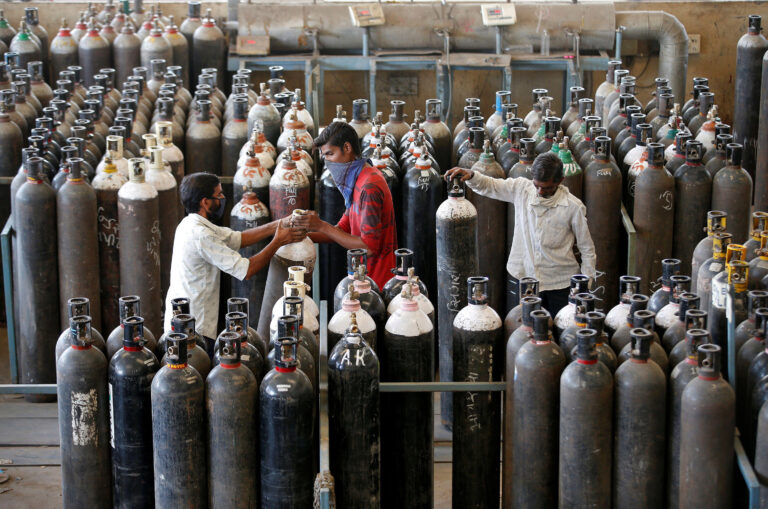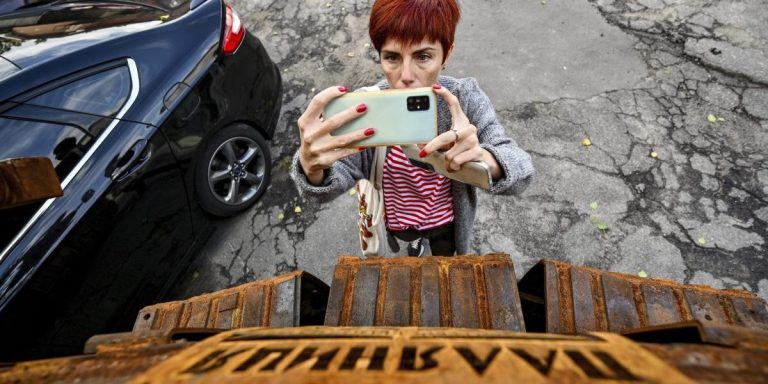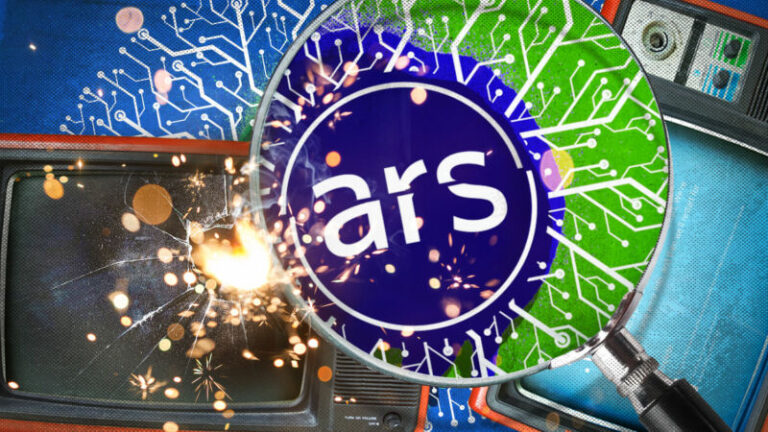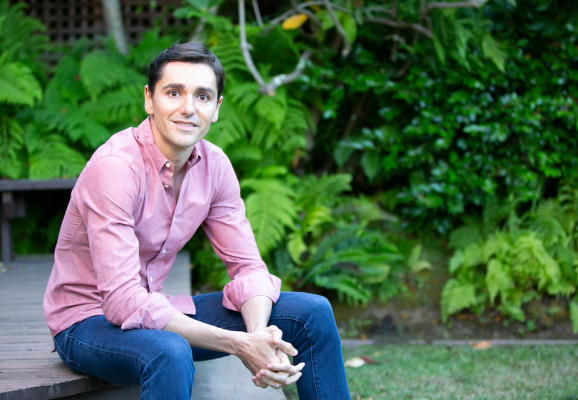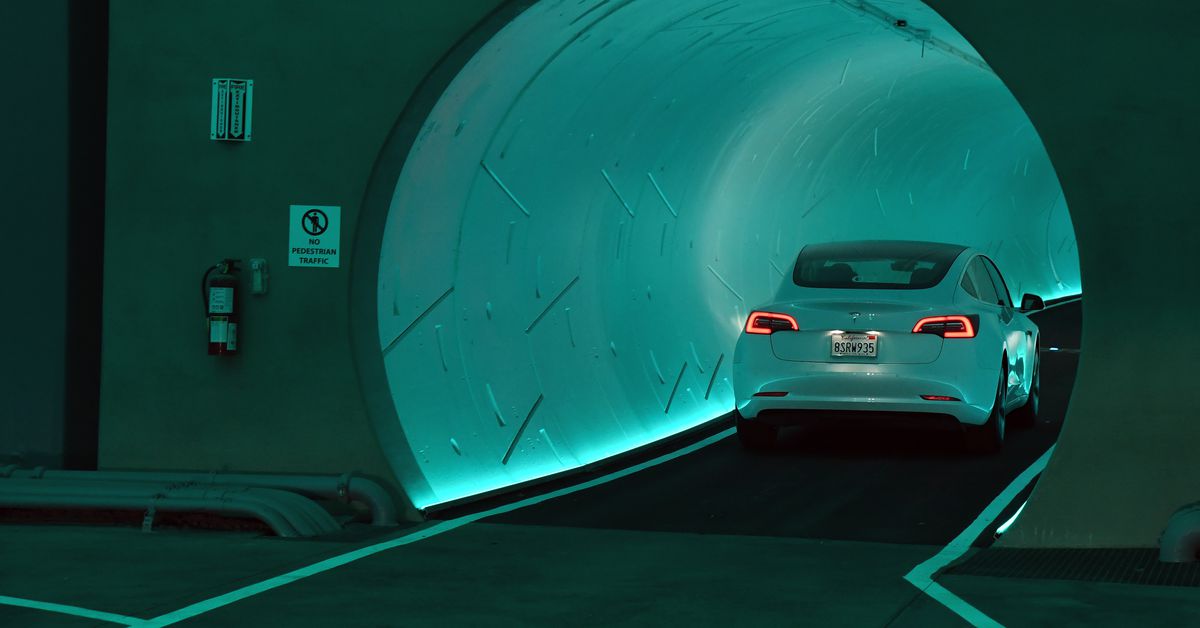
Fort Lauderdale is interested in using a tunnel to ease traffic on one of its busiest roads, and Elon Musk wants to build it. This week, Ford Lauderdale’s city government accepted a proposal from Musk’s urban tunnel-digging outfit, the Boring Company, to carve out an underground passageway that will deliver people from downtown to the beach via self-driving Teslas.
“These cars would go from downtown Fort Lauderdale to the beach and back with a stop along Las Olas, which is our main restaurant-business boulevard,” Ben Sorensen, Fort Lauderdale’s city commissioner, told Recode. Now that the proposal has been accepted, other firms have 45 days to submit their own ideas for a tunnel.
Fort Lauderdale formally accepted tonight a proposal from @elonmusk’s @boringcompany to build an underground transit system between downtown and the beach. Other firms have 45 days to submit competing proposals. This could be a truly innovative way to reduce traffic congestion. pic.twitter.com/R7Bh2NPVnl
— Mayor Dean J. Trantalis (@DeanTrantalis) July 7, 2021
Fort Lauderdale is just the latest place where local government officials have explored the idea of underground traffic tunnels filled with Teslas. But as other cities have struggled to get their Boring Company tunnels off (or rather, under) the ground, the beginnings of a plan to build this infrastructure in Fort Lauderdale is already raising concerns that the Boring Company’s past problems could repeat themselves — not to mention the added challenge of overcoming Florida’s rising sea levels.
Regardless, Fort Lauderdale and the Boring Company are confident in the tunnel plan, which has been percolating since the end of last year, Sorensen said. Government officials have already met with engineers, visited the Boring Company’s loop in Las Vegas, and even requested state support for the project’s expansion. At the same time, the mayor has become something of an Elon fan, praising Musk and the Boring company in his newsletter.
Concerns that the project is ill-advised cropped up soon after it was announced. Some fear that the tunnel might be a flood risk, given the city’s proximity to the ocean and rising sea levels spurred by climate change. Another worry is that the Boring Company has promised lower costs and faster construction times, despite engineering and tunnel industry experts saying the firm doesn’t offer any particularly novel way of building tunnels. Others have suggested that greater investment into public transportation might be a better solution to the city’s traffic congestion problem.
“It’s worth investigating whether that’s feasible from a structural and engineering perspective,” Lily Elefteriadou, the director of the University of Florida’s Transportation Institute, told Recode. “From a transportation systems perspective, it makes sense to look into alternatives to get people out of private vehicles and see if that might work.”
Tunnels are expensive, Elefteriadou explained, and a dedicated lane or a rail line might do the trick, depending on the land, funding available, and expected ridership.
If the tunnel plan does go through, experts told Recode that water issues, including those exacerbated by climate change, will impact what kinds of features engineers will need to consider.
“The designers will look at what are all the loads and situations that could conceivably exist over that 100- to 150-year time period,” said Michael Mooney, a professor at the Colorado School of Mines who focuses on underground construction and tunnels. “They’ll look at rising sea level, they’ll look at what the design-hurricane event will be, and then they’ll design accordingly.”
Water problems could impact how high a tunnel’s two ends are built, and the specifics of the tunnel’s water-pumping system, Mooney added.
Of course, water is not unfamiliar territory to tunnel engineers, and engineers have waterproofed tunnels in the past. Consider a nearby example: the recently constructed Port of Miami Tunnel, an undersea tunnel the city built to connect two islands off the mainland. This project also had to take into account the risks of storm surge and other water challenges. With the Fort Lauderdale tunnel, engineers will have to consider the area’s soil conditions, including sandy soil and limestone, according to University of Central Florida civil engineering professor Luis Arboleda Monsalve.
“We have done all kinds of tunnels in very, very difficult ground,” Monsalve said.
But there are still potential unknowns. “We have a better idea of what can happen in the next 30 years. In 100 years, there are many more uncertainties,” Shimon Wdowinski, an earth and environment professor at Florida International University, told Recode. “As everybody knows, sea level is rising.”
Fort Lauderdale is not the only city in Florida whose local government is being wooed by Musk’s company. Florida Gov. Ron DeSantis has already spoken with Musk, and the mayor of Miami, Francis Suarez, wants a road tunnel in his city too.
Cars & trucks stuck in traffic generate megatons of toxic gases & particulate, but @boringcompany road tunnels under Miami would solve traffic & be an example to the world.
Spoke with @RonDeSantisFL about tunnels last week. If Governor & Mayor want this done, we will do it.
— Elon Musk (@elonmusk) January 18, 2021
But there’s still reason to be skeptical. Several of the Boring Company’s tunnel proposals never took off. One plan to build a tunnel connecting Chicago’s downtown Loop and its O’Hare Airport didn’t pan out, and the company also seems to have stalled its plans to build a loop tunnel between DC and Baltimore. Meanwhile, the tunnels the Boring Company has built have yet to meet the firm’s original expectations, and the company’s test tunnel in Los Angeles was a far cry from the futuristic designs the company originally proposed.
Sorensen, the Fort Lauderdale city commissioner, told Recode that the city hoped to be able to transport 4,000 people on the loop and have cars run entirely autonomously. But in the Las Vegas tunnel, self-driving cars still haven’t arrived (the Teslas are driven by humans), and, due to fire regulations, the system is still struggling to boost the loop’s capacity to 4,000.
Fort Lauderdale is still waiting to see if any other companies will offer their own proposals to build this tunnel, though none have expressed interest yet. Otherwise, it seems as though the city plans to move forward, despite the concerns.
“It needs to be taken into account that for 30 years, it may work, but maybe afterward not,” Wdowinski said. “This is up to the decision-maker to decide.”

